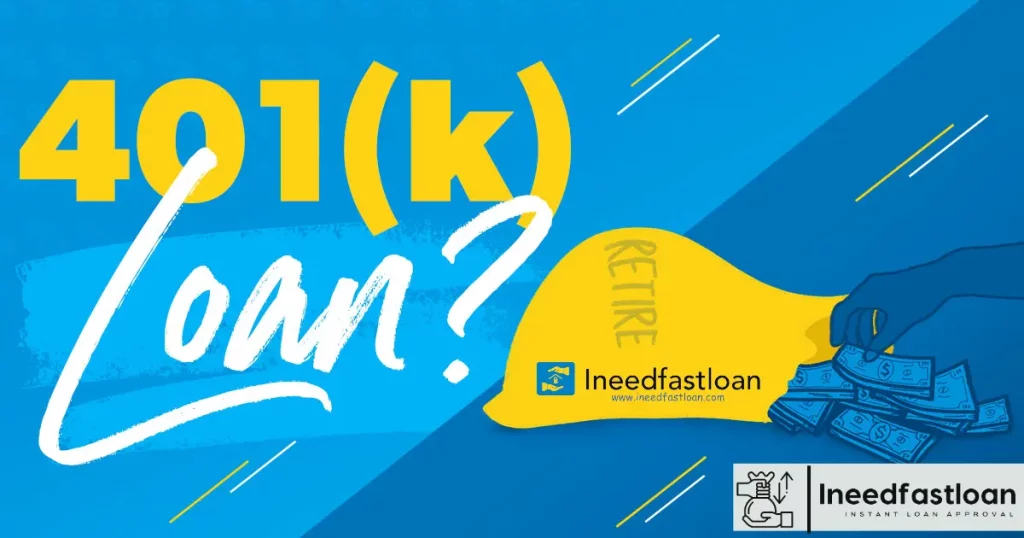Unlock the secrets of calculating 401k loan interest rates and mastering the optimal timing for applying for a 401k loan. Dive into our comprehensive guide to gain invaluable insights and make informed financial decisions.
In the realm of financial planning, few tools are as versatile and valuable as the 401k. This retirement savings account not only offers a tax-advantaged way to save for the future but also provides a means for accessing funds when needed through 401k loans. Understanding the intricacies of 401k loan interest rates and knowing the optimal timing for applying can significantly impact your financial well-being. In this comprehensive guide, we delve into the nuances of 401k loan interest rates and provide insights on when to apply for a 401k loan.
What Are 401k Loan Interest Rates?
Before delving into the specifics of 401k loan interest rates, it’s essential to understand how these loans function. A 401k loan allows you to borrow funds from your retirement savings, with the promise of repaying the loan over a specified period, typically five years. Unlike traditional loans, where interest payments accrue to a lender, the interest on a 401k loan is paid back to your own retirement account.
How Are 401k Loan Interest Rates Determined?
The interest rate on a 401k loan is typically set by the plan administrator, often based on prevailing market rates. However, unlike traditional loans, there’s no extensive credit check or underwriting process involved. Instead, the interest rate for a 401k loan is generally fixed at a level slightly above the prime rate, ensuring that the loan remains competitive with other borrowing options.
Factors Influencing 401k Loan Interest Rates
Several factors can influence the interest rate on a 401k loan, including prevailing market conditions, the policies of your employer’s retirement plan, and the terms outlined in your plan documents. Additionally, some employers may offer lower interest rates as an incentive to encourage employees to utilize their 401k accounts for borrowing rather than seeking external financing.
The Impact of Loan Term on Interest Rates
When considering a 401k loan, it’s crucial to understand how the loan term affects the interest rate. Generally, shorter loan terms, such as those spanning one to five years, tend to have lower interest rates compared to longer-term loans. However, opting for a shorter loan term may result in higher monthly payments, so it’s essential to weigh the trade-offs carefully.
When to Apply for a 401k Loan
One of the primary reasons individuals opt for a 401k loan is to address immediate financial needs. Whether it’s covering unexpected medical expenses, making a down payment on a home, or consolidating high-interest debt, a 401k loan can provide quick access to funds without the need for a credit check or lengthy approval process.
Timing Considerations for Loan Application
While a 401k loan can offer a lifeline during times of financial strain, it’s essential to consider the timing of your loan application carefully. Ideally, you should only pursue a 401k loan when other avenues for obtaining financing have been exhausted or when the benefits of accessing your retirement savings outweigh the potential drawbacks.
Minimizing Disruption to Retirement Savings
One of the key considerations when contemplating a 401k loan is the impact it may have on your long-term retirement savings goals. While borrowing from your 401k can provide immediate relief, it’s essential to recognize that withdrawing funds prematurely can hinder the growth of your retirement nest egg. Therefore, it’s prudent to explore alternative solutions before tapping into your 401k savings.
401k Loan Requirements: What You Need to Know
Navigating the realm of retirement planning often involves considering various tools and options available to secure your financial future. One such option is a 401k loan, which allows you to borrow funds from your retirement savings for various purposes. However, before delving into the process of obtaining a 401k loan, it’s crucial to understand the requirements involved. In this guide, we’ll explore the key prerequisites for obtaining a 401k loan, empowering you to make informed decisions regarding your retirement savings strategy.
Eligibility Criteria for 401k Loans
Before applying for a 401k loan, it’s essential to determine whether you meet the eligibility criteria outlined by your employer’s retirement plan. While specific requirements may vary depending on the plan, there are typically common eligibility criteria to consider:
-
Employment Status:
Generally, you must be actively employed by the company sponsoring the 401k plan to qualify for a loan. If you’ve recently left or been terminated from your job, you may no longer be eligible to take out a 401k loan.
-
Plan Participation:
You must be a participant in your employer’s 401k plan to be eligible for a loan. If you’re not currently enrolled in the plan or haven’t met the minimum participation requirements, you may need to wait until you’re eligible before applying for a loan.
-
Loan Limits:
Most 401k plans impose limits on the amount you can borrow, typically capped at a percentage of your account balance or a specified dollar amount. Ensure you understand the maximum loan amount allowed under your plan to avoid exceeding the limits.
Documentation and Application Process
Once you’ve confirmed your eligibility for a 401k loan, you’ll need to navigate the documentation and application process, which may vary depending on your employer’s plan administrator. Common steps involved in obtaining a 401k loan include:
-
Loan Application:
You’ll need to complete a loan application form provided by your plan administrator, detailing the amount you wish to borrow and the intended purpose of the loan.
-
Loan Agreement:
Upon approval of your loan application, you’ll be required to review and sign a loan agreement outlining the terms and conditions of the loan, including the interest rate, repayment schedule, and any associated fees.
-
Repayment Authorization:
Your plan administrator may require you to authorize payroll deductions or other repayment methods to ensure timely repayment of the loan.
-
Verification of Funds:
In some cases, your plan administrator may require verification of available funds in your 401k account to ensure you meet the minimum balance requirements for borrowing.
Repayment Terms and Considerations
Before proceeding with a 401k loan, it’s essential to understand the repayment terms and considerations associated with borrowing from your retirement savings:
-
Repayment Schedule:
Typically, 401k loans must be repaid within a specified period, often five years, although some plans may offer longer repayment terms for loans used to purchase a primary residence.
-
Interest Payments:
While the interest on a 401k loan is paid back to your own retirement account, it’s crucial to understand the impact of interest payments on your overall loan repayment. Failure to repay the loan according to the agreed-upon terms could result in penalties and tax consequences.
-
Impact on Retirement Savings:
Borrowing from your 401k can temporarily reduce the growth potential of your retirement savings, as the borrowed funds are no longer invested in your account. Consider the long-term implications of taking out a loan and explore alternative financing options where possible.
Obtaining a 401k loan can provide a valuable source of funding for various financial needs, but it’s essential to understand the requirements and implications associated with borrowing from your retirement savings. By familiarizing yourself with the eligibility criteria, documentation process, and repayment terms, you can make informed decisions that align with your financial goals and objectives.
The Benefits of 401k Loans
In this guide, we’ll delve into the advantages of 401k loans, empowering you to make informed decisions about utilizing this financial tool to meet your short-term objectives while safeguarding your long-term retirement goals.
Access to Funds Without Credit Checks
One of the primary benefits of 401k loans is the ease of access to funds without the need for traditional credit checks or extensive underwriting processes. Unlike conventional loans, which may require a pristine credit history or collateral, 401k loans rely solely on the assets held within your retirement account as collateral. This accessibility makes 401k loans an attractive option for individuals with less-than-perfect credit or those seeking quick access to funds without the hassle of credit checks.
Competitive Interest Rates
Another advantage of 401k loans is the competitive interest rates offered compared to alternative borrowing options. While interest rates may vary depending on the terms of your employer’s retirement plan, 401k loans typically come with interest rates that are lower than those charged by credit cards or personal loans. This can result in substantial savings on interest payments over the life of the loan, making 401k loans a cost-effective solution for short-term borrowing needs.
Flexibility in Loan Purpose
Unlike some other types of loans that may impose restrictions on how borrowed funds can be used, 401k loans offer greater flexibility in terms of loan purpose. Whether you need to cover unexpected medical expenses, make a down payment on a home, or consolidate high-interest debt, a 401k loan allows you to use the funds for a wide range of financial needs. This versatility makes 401k loans a valuable tool for addressing various short-term financial challenges without limitations on how the funds are utilized.
Repayment Contributions Benefit Your Retirement Account
Perhaps one of the most significant advantages of 401k loans is that the interest payments you make on the loan are deposited back into your own retirement account. Unlike traditional loans, where interest payments accrue to a lender, the interest on a 401k loan effectively becomes part of your retirement savings. This means that while you’re borrowing from your 401k account, you’re also contributing to its growth through interest payments, thereby enhancing your long-term retirement prospects.
Minimized Tax Consequences
When it comes to 401k loans, another noteworthy benefit is the minimized tax consequences compared to other forms of borrowing. Since 401k loans are considered loans rather than taxable distributions, they’re not subject to income tax or early withdrawal penalties, provided you adhere to the repayment terms outlined in your plan. This tax-efficient borrowing option can result in significant savings compared to alternatives that may incur higher tax liabilities.
401k loans offer a range of benefits for individuals seeking access to funds while maintaining a focus on their long-term retirement goals. From competitive interest rates and flexible loan purposes to the opportunity to contribute to your retirement savings through interest payments, 401k loans provide a valuable financial tool for addressing short-term needs without sacrificing long-term financial security. By understanding the advantages of 401k loans and how they align with your financial objectives, you can make informed decisions that support your overall wealth management strategy.
Conclusion
Navigating the intricacies of 401k loan interest rates and determining the optimal timing for applying requires careful consideration of your financial circumstances and long-term goals. By understanding how 401k loans work and weighing the pros and cons of borrowing against your retirement savings, you can make informed decisions that support your financial well-being both now and in the future.
Don’t forget to share this post to your love ❤ ones.
Facebook Page: Ineedfastloan
Twitter Page: Ineedfastloan
Telegram Channel: Ineedfastloan
Email contact: support@Ineedfastloan.com






